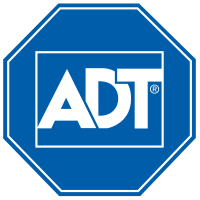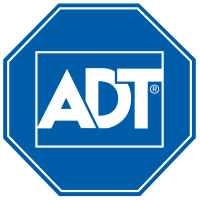
ADT Inc
NYSE:ADT


| US |

|
Johnson & Johnson
NYSE:JNJ
|
Pharmaceuticals
|
| US |

|
Berkshire Hathaway Inc
NYSE:BRK.A
|
Financial Services
|
| US |

|
Bank of America Corp
NYSE:BAC
|
Banking
|
| US |

|
Mastercard Inc
NYSE:MA
|
Technology
|
| US |

|
UnitedHealth Group Inc
NYSE:UNH
|
Health Care
|
| US |

|
Exxon Mobil Corp
NYSE:XOM
|
Energy
|
| US |

|
Pfizer Inc
NYSE:PFE
|
Pharmaceuticals
|
| US |

|
Palantir Technologies Inc
NYSE:PLTR
|
Technology
|
| US |

|
Nike Inc
NYSE:NKE
|
Textiles, Apparel & Luxury Goods
|
| US |

|
Visa Inc
NYSE:V
|
Technology
|
| CN |

|
Alibaba Group Holding Ltd
NYSE:BABA
|
Retail
|
| US |

|
3M Co
NYSE:MMM
|
Industrial Conglomerates
|
| US |

|
JPMorgan Chase & Co
NYSE:JPM
|
Banking
|
| US |

|
Coca-Cola Co
NYSE:KO
|
Beverages
|
| US |

|
Walmart Inc
NYSE:WMT
|
Retail
|
| US |

|
Verizon Communications Inc
NYSE:VZ
|
Telecommunication
|
Utilize notes to systematically review your investment decisions. By reflecting on past outcomes, you can discern effective strategies and identify those that underperformed. This continuous feedback loop enables you to adapt and refine your approach, optimizing for future success.
Each note serves as a learning point, offering insights into your decision-making processes. Over time, you'll accumulate a personalized database of knowledge, enhancing your ability to make informed decisions quickly and effectively.
With a comprehensive record of your investment history at your fingertips, you can compare current opportunities against past experiences. This not only bolsters your confidence but also ensures that each decision is grounded in a well-documented rationale.
Do you really want to delete this note?
This action cannot be undone.

| 52 Week Range |
6.12
8.14
|
| Price Target |
|
We'll email you a reminder when the closing price reaches USD.
Choose the stock you wish to monitor with a price alert.

|
Johnson & Johnson
NYSE:JNJ
|
US |

|
Berkshire Hathaway Inc
NYSE:BRK.A
|
US |

|
Bank of America Corp
NYSE:BAC
|
US |

|
Mastercard Inc
NYSE:MA
|
US |

|
UnitedHealth Group Inc
NYSE:UNH
|
US |

|
Exxon Mobil Corp
NYSE:XOM
|
US |

|
Pfizer Inc
NYSE:PFE
|
US |

|
Palantir Technologies Inc
NYSE:PLTR
|
US |

|
Nike Inc
NYSE:NKE
|
US |

|
Visa Inc
NYSE:V
|
US |

|
Alibaba Group Holding Ltd
NYSE:BABA
|
CN |

|
3M Co
NYSE:MMM
|
US |

|
JPMorgan Chase & Co
NYSE:JPM
|
US |

|
Coca-Cola Co
NYSE:KO
|
US |

|
Walmart Inc
NYSE:WMT
|
US |

|
Verizon Communications Inc
NYSE:VZ
|
US |
This alert will be permanently deleted.
 ADT Inc
ADT Inc
ADT Inc
Once upon a time in American business history, a company emerged with a focus on safeguarding homes and businesses. ADT Inc., which initially began as a telegraph delivery company in the 19th century, gradually transformed into one of the leading providers of security and automation solutions. With innovation and strategic growth as its driving forces, ADT shaped its offerings to meet the evolving needs of its customers. The company became synonymous with security by providing essential services such as alarm monitoring, video surveillance, and smart home technology. By integrating advanced technology with customer-centric services, ADT tapped into the ever-growing desire for safety and convenience, embedding itself into the everyday lives of millions of Americans.
At the core of ADT's operations lies a robust subscription-based model, which ensures a steady stream of revenue. Its business thrives on offering bundled packages, allowing customers to choose from entry-level systems to more sophisticated setups involving cameras, thermostats, and digital locks. Customers pay regular fees for monitoring services, which are facilitated through ADT's extensive network of monitoring centers staffed 24/7. This continuous surveillance ensures prompt responses to emergencies, cementing ADT's value proposition. Furthermore, ADT has ventured into business security solutions, thus broadening its market reach while maintaining strong customer retention through updated tech offerings and reliable service, creating a consistent and trusted brand in the realm of security solutions.

Once upon a time in American business history, a company emerged with a focus on safeguarding homes and businesses. ADT Inc., which initially began as a telegraph delivery company in the 19th century, gradually transformed into one of the leading providers of security and automation solutions. With innovation and strategic growth as its driving forces, ADT shaped its offerings to meet the evolving needs of its customers. The company became synonymous with security by providing essential services such as alarm monitoring, video surveillance, and smart home technology. By integrating advanced technology with customer-centric services, ADT tapped into the ever-growing desire for safety and convenience, embedding itself into the everyday lives of millions of Americans.
At the core of ADT's operations lies a robust subscription-based model, which ensures a steady stream of revenue. Its business thrives on offering bundled packages, allowing customers to choose from entry-level systems to more sophisticated setups involving cameras, thermostats, and digital locks. Customers pay regular fees for monitoring services, which are facilitated through ADT's extensive network of monitoring centers staffed 24/7. This continuous surveillance ensures prompt responses to emergencies, cementing ADT's value proposition. Furthermore, ADT has ventured into business security solutions, thus broadening its market reach while maintaining strong customer retention through updated tech offerings and reliable service, creating a consistent and trusted brand in the realm of security solutions.





























 You don't have any saved screeners yet
You don't have any saved screeners yet
